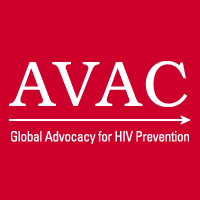 The Good Participatory Practice (GPP) Guidelines were developed by AVAC and UNAIDS. They provide trial funders, sponsors and implementers with systematic guidance on how to effectively engage with all stakeholders in the design and conduct of biomedical HIV prevention trials. Although the guidelines were developed for HIV, they are valuable and adaptable to clinical trials across fields, research areas, geographies and populations.
The Good Participatory Practice (GPP) Guidelines were developed by AVAC and UNAIDS. They provide trial funders, sponsors and implementers with systematic guidance on how to effectively engage with all stakeholders in the design and conduct of biomedical HIV prevention trials. Although the guidelines were developed for HIV, they are valuable and adaptable to clinical trials across fields, research areas, geographies and populations.
The guidelines are available in multiple languages. AVAC has also developed an array of supplementary GPP tools.
The first edition of the Good Participatory Practice Guidelines for biomedical HIV prevention trials was published in 2007 by the Joint United Nations Programme on HIV/AIDS (UNAIDS) and AVAC. The biomedical HIV prevention field had recently grappled with controversy and civil society concerns that led to the halting of PrEP efficacy trials planned in Cambodia and Cameroon. Local, national, and international stakeholders raised concerns about these trials, highlighting a disconnect with research teams and divergent perspectives on the ethics of the trials' design. The proposed trials had been designed in accordance with international guidance on ethics and clinical research. However there was no common document or guideline for conducting or evaluating stakeholder engagement--and the controversies helped crystallize the need for such a document, which ultimately became GPP.
Find out more about how GPP is applied in practice and download the guidelines HERE
This work is licensed under a Creative Commons Attribution 4.0 International License


Please Sign in (or Register) to view further.